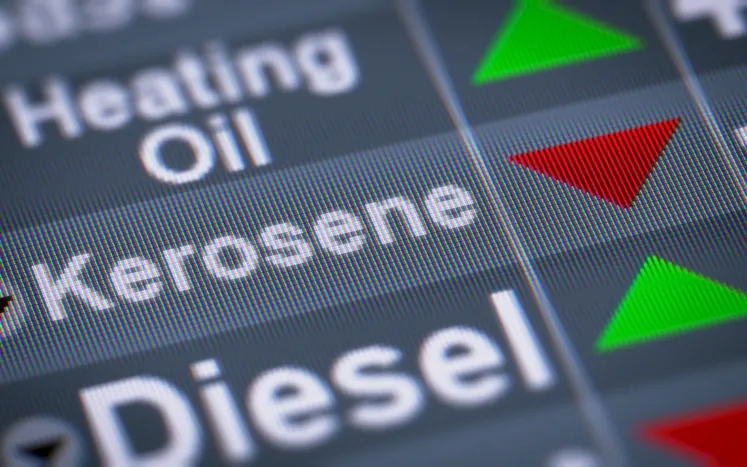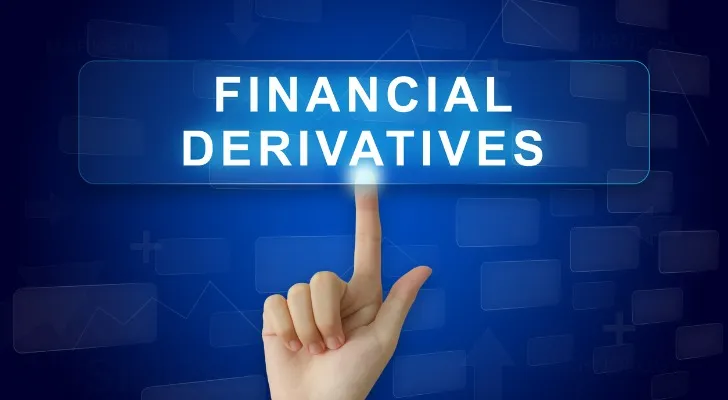Futures and forwards offer an alternative to traditional stock investing. Both are types of derivative investments, in that their values are based on the value of underlying assets. Regardless of whether you’re investing in futures vs. forwards, both involve an agreement to buy and sell an asset at in the future. Here’s what you need to know about these two types of investments.
Derivatives can be complex, so it’s wise to work with a financial advisor if you are considering such an investment.
What Are Futures?
Futures, also referred to as futures contracts, represent an agreement to buy or sell a particular asset at a set date and price. The types of underlying assets that can be involved in a futures contract can include:
- Stocks
- Exchange-traded funds (ETFs)
- Bonds
- Currencies, including cryptocurrencies
- Market indexes
- Commodities, such as oil or coffee
- Precious metals
How Futures Work
Investors can use futures contracts to insulate their portfolios against wide pricing swings for underlying investments. For example, a company may agree to purchase so many tons of a particular commodity, like corn or soybeans. Meanwhile, a distributor of that commodity agrees to sell that amount to the company on a specific date. A commodity futures contract spells out the terms of the transaction between the buyer and seller, including the price at which the asset will be sold.
Futures are largely speculative investments. This is because there’s no way to predict with absolute certainty which way the price of an underlying asset will move. If an investor’s guess is wrong, it’s possible that they could lose money on futures contracts investments.
Investors can also run into trouble with futures contracts if they’re trading on margin. Margin essentially means money borrowed from a brokerage. Margin trading can amplify gains when a futures contract returns a profit. However, it can also multiply losses if the price of the underlying asset doesn’t move as expected.
What Are Forwards?
Forwards, also known as forward contracts, are financial agreements between a buyer and a seller to trade an underlying asset at a predetermined price on a specific future date. While similar to futures contracts in their purpose, forwards differ in several key ways, including settlement timing, trading mechanisms and obligations for both parties.
How Do Forwards and Futures Differ?
Here are the primary distinctions between forwards and futures:
- Settlement Timing: Forwards are settled at maturity, meaning at the end of the contract period. Futures, however, are settled daily until the contract ends.
- Trading Platform: Futures are publicly traded on exchanges, with transactions processed through a clearinghouse. Forwards, on the other hand, are private agreements and not traded on public exchanges.
- Investor Accessibility: Futures are accessible to everyday investors via online trading platforms, while forwards are exclusive and typically involve private parties.
- Flexibility and Liquidity: Futures offer greater flexibility and liquidity, allowing investors to exit positions via cash settlement. Forwards require both parties to fulfill the contract terms as agreed, regardless of price changes.
The private nature of forward contracts introduces a stricter level of obligation for both the buyer and the seller:
- Buyer Obligations: If a buyer agrees to purchase a specific quantity of an asset — such as five tons of coffee beans — they are required to complete the purchase at the agreed price.
- Seller Obligations: The seller must deliver the agreed-upon quantity of the asset on the specified date.
Unlike futures contracts, forwards do not allow for cash settlements or flexible exit options, making them less liquid and more binding.
Why Choose Futures Over Forwards?
Futures are often preferred for their accessibility and flexibility. For instance, if you invest in a futures contract for coffee beans, you can settle in cash without worrying about physical delivery. This ease of entry and exit makes futures a more practical choice for many investors, particularly those who prioritize liquidity.
Forwards, by contrast, cater to niche markets or specialized arrangements where private parties need a tailored agreement without the intervention of an exchange.
Futures vs. Forwards: Which Is Better?

Since futures and forwards are so similar, it can be difficult to say which one offers an edge in terms of the potential for investment gains. But based purely on accessibility alone, futures can be the better choice for the everyday investor. There may simply be fewer opportunities to invest in forwards if you don’t actually need to purchase the underlying asset associated with a contract since these are private transactions.
If you’re looking for ways to incorporate hedging strategies into your portfolio, futures and forwards could help with that goal. Hedging simply means finding ways to limit the risk for potential losses. Real estate, for example, is often considered to be a built-in hedge as it has low correlation to the stock market in general. You could use futures contracts to hedge against price variations in a particular security or commodity.
It’s important to keep in mind that both futures and forwards can carry a higher degree of risk compared to trading stocks, exchange-traded funds (ETFs), bonds and other securities. In a sense, they can be comparable to options since you’re trying to make an accurate guess about which way an asset’s price will move. And again, if you’re using leverage or margin to trade either one you could end up increasing losses.
How to Invest in Futures
If you want to invest in futures, opening an online brokerage account is the first step. While not all online brokerages offer futures trading, there are plenty that do. When comparing brokerage account options, you’ll want to consider things like:
- Minimum investment requirements
- Range of investment options available, besides futures
- Trading costs
When allocating part of your portfolio to futures contracts, consider your personal risk tolerance, time horizon for investing and goals. The younger you are, the more risk you can generally afford to take. Considering the bigger investment picture can help you decide how much of your investment portfolio you should allocate to futures or other speculative investments.
Bottom Line

Futures and forwards could help you expand your investment horizons if you’re looking to go further than just stocks or bonds. But it’s important to understand how they work and the risks involved. There are some differences, however, in how futures contracts and forward contracts are executed that are important for investors to understand. While futures and forwards may be a good choice for some investors, they aren’t necessarily right for everyone.
Tips for Investing
- Consider talking to your financial advisor about futures vs. forwards and whether these types of investments are a good fit for your portfolio. If you don’t have a financial advisor yet, finding one doesn’t have to be complicated. SmartAsset’s financial advisor matching tool makes it easy to connect with professional advisors in your local area. It takes just a few minutes to get your personalized advisor recommendations. If you’re ready then get started now.
- Use the SmartAsset capital gains calculator to help determine your tax position.
- If you’re on the fence about investing in futures directly, you may consider trading futures-based ETFs instead. These ETFs can offer exposure to a collection of futures-based investments, making it easier to diversify and manage risk. Depending on your choice of online brokerage, you may be able to invest in futures ETFs alongside other ETFs. And many brokerages now offer commission-free ETF and stock trades. When comparing futures ETFs, consider the risk profile, past performance as well as the expense ratio you’ll pay to own it.
Photo credit: ©iStock.com/pichet_w, ©iStock.com/PashaIgnatov, ©iStock.com/andresr
